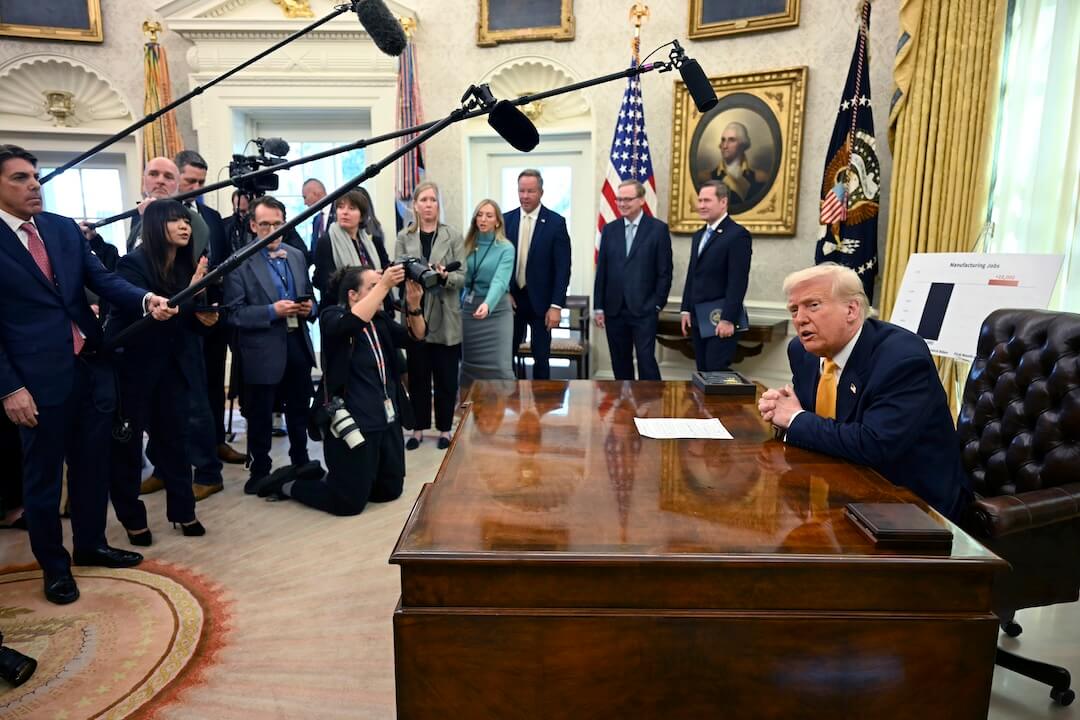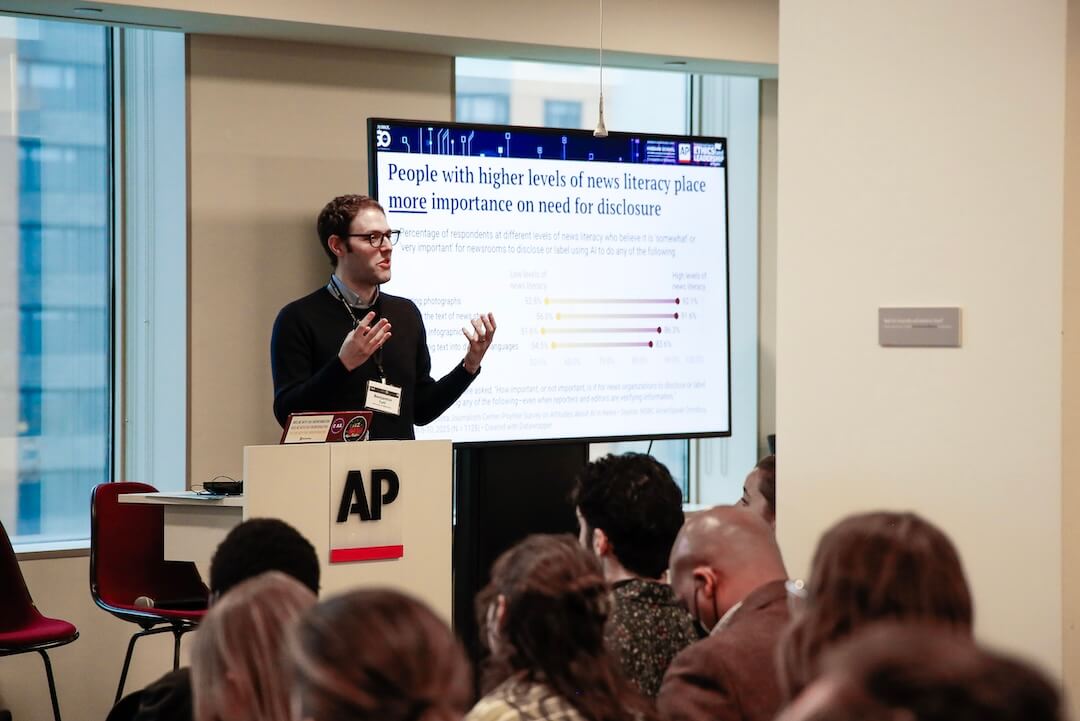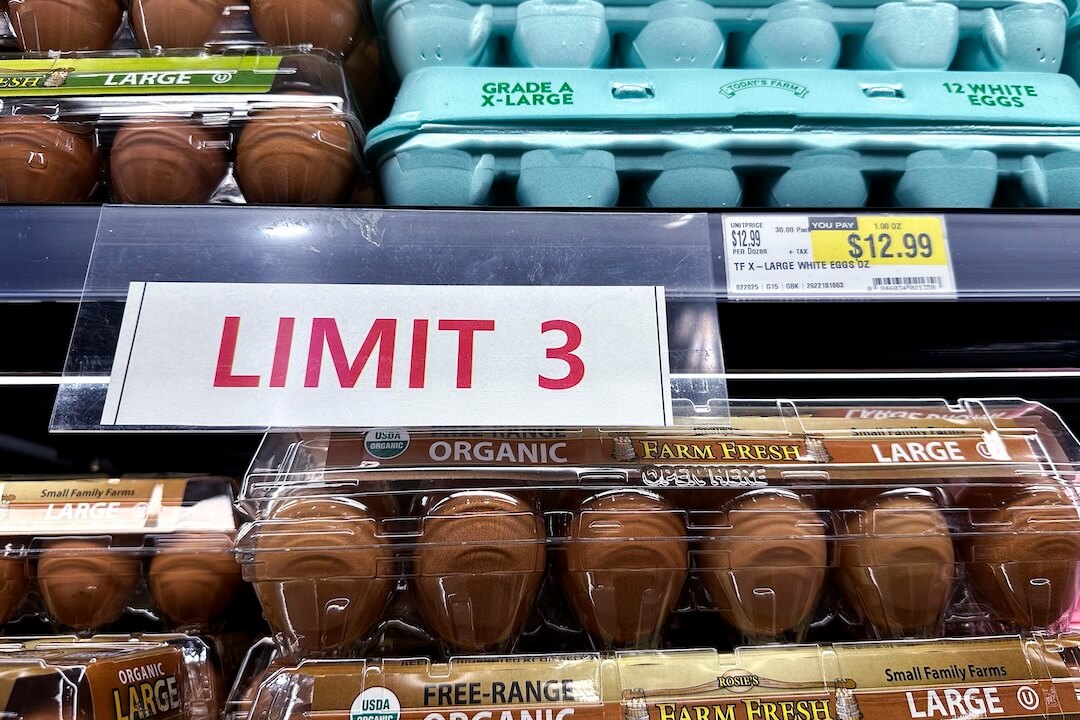Some social media users claim to have found an explanation for Vice President Kamala Harris’ 2024 election loss. They say billionaire Elon Musk’s Starlink technology manipulated votes to benefit President-elect Donald Trump.
Starlink is an internet provider that uses satellites to provide connectivity; it’s a subsidiary of Musk’s commercial spaceflight company SpaceX.
“Musk’s Starlink uploaded votes in swing states,” one Nov. 10 Threads post said. “Swing state voters went Dem downballot but Trump at the top? Unlikely. Starlink satellites exploding, destroying evidence.”
Starlink made headlines in recent weeks when the company distributed equipment to help people regain internet access in hurricane-hit areas. To some, that move was further proof of the conspiracy.
“The Russians have access to Starlink terminals and therefore the satellites. The Russians are known hackers,” said another Nov. 10 Threads post. “Elon Musk and the US gov. sent Starlink terminals to Florida, Georgia, North and South Carolina, Tennessee, Kentucky, Virginia and West Virginia due to the hurricanes.”
Other Threads users summarized the unsubstantiated claims: “People are saying Elon Musk used Starlink to steal the U.S. Election for Donald Trump.”

(Screenshots/Threads)
These posts were flagged as part of Meta’s efforts to combat false news and misinformation on its News Feed. (Read more about our partnership with Meta, which owns Facebook, Instagram and Threads.)
Election security experts and state and local election officials rebutted the claims, saying the 2024 presidential election was secure and there’s no evidence of Starlink-related fraud.
“Starlink is suspected by conspiracy theorists not because of what it does, but because Elon Musk owns it,” said Mike Rothschild, a journalist, author and conspiracy theory expert.
This conspiracy theory circulated on Threads amid a larger wave of election denial claims from liberals that mimic Republicans’ false claims about 2020 election fraud.
“Conspiracy theories about lost elections being stolen are a natural way to cope with an unexpected outcome,” Rothschild said, adding that it’s important to “leave conspiracism behind and embrace reality.”
Election infrastructure is secure
Jen Easterly, director of the federal Cybersecurity and Infrastructure Security Agency, reported Nov. 6 that the agency had “no evidence of any malicious activity that had a material impact on the security or integrity of our election infrastructure.”
Officials from swing states that received Starlink technology after the September and October hurricanes also said Starlink technology could not have been used to benefit Trump.
North Carolina’s tabulators and ballot-marking devices are never connected to the internet, Patrick Gannon, the North Carolina State Board of Elections spokesperson, said. Connecting such equipment to the internet is prohibited by state law, he said.
“Satellite-based internet devices were not used to tabulate or upload vote counts in North Carolina,” Gannon said. “In addition, our tabulated results are encrypted from source to destination preventing results being modified in transit. We have no evidence of any alteration of votes by anyone.”
The other six swing states — Arizona, Georgia, Michigan, Nevada, Pennsylvania and Wisconsin — have similar election security protocols to ensure voting equipment is never connected to the internet during ballot tabulation.
Even if Starlink had somehow been used to modify the vote count, there are systems designed to catch tabulation discrepancies, including risk-limiting audits, canvassing and certification of the election results, said Michael Specter, a Georgia Institute of Technology assistant professor specializing in election security.
“None of these are foolproof, but each makes it significantly less likely that an attack would be successful,” Specter said.
Broadly speaking, voting machines are not connected to the internet, experts said. In some states, ballot tabulators are briefly connected to the internet to transmit results when polls close. And in many places, other election infrastructure, such as pollbooks with lists of digital voter registration records, have internet connectivity.
We found little evidence Starlink is widely used during elections. Even in Asheville, North Carolina’s Buncombe County, one of the places hardest hit by Hurricane Helene, election officials told PolitiFact that Starlink was not used for any election functions.
Genya Coulter, senior election analyst for the OSET Institute, a nonprofit focused on accurate, secure and transparent elections, said she knew Starlink technology had been used to support election infrastructure in one place: Tulare County, California. Trump won Tulare County with about 60% of the vote.
“Most of the rural part of the county has little to no access to broadband, and Starlink was used to have the electronic pollbooks connected to a county voter database,” Coulter said. Pollbooks are lists of digital voter registration records.
Vote tabulators weren’t connected to Starlink satellite internet, she said, adding that the county had about 28,000 in-person voters.
Regarding claims about Russian hackers swaying election outcomes, Coulter said she was “less worried about Russian hackers affecting vote totals and significantly more concerned” with the deluge of incorrect election information that Russian-linked groups distributed online before the election and the bomb threats targeting election infrastructure that officials said were “of Russian origin.”
What about reports of a Starlink satellite fireball?
On Nov. 10, a Starlink satellite reentered Earth’s atmosphere heading southeast from Washington to Texas and exploded.
Jonathan McDowell, an astrophysicist and science data system group leader at NASA’s Chandra X-ray Center, said there’s nothing noteworthy about that.
“This is not a case of suddenly deciding to retire this satellite within the past week,” McDowell said. “Such reentries have been happening almost daily for the past few years, they just are at random times and random places in the world so not often over the U.S. at night where Americans can see it.”
According to U.S. Space Force data, SpaceX removed this particular satellite from operation Aug. 2, at which point the satellite started lowering its orbit, McDowell said. SpaceX abandoned the satellite Oct. 13, McDowell said.
Stargazers in the Southwest United States reported seeing fireballs in the early morning hours on Nov. 10. McDowell said that’s normal: During satellite reentry and breakup, observers can sometimes see fireballs moving slowly across the sky.
Why Democrats won Senate races while Trump won presidency
Some of the posts that floated the Starlink conspiracy theory pointed to Democratic successes in some down-ballot races as evidence that something was off in the Trump-Harris results. Although there’s a strong correlation between votes cast for president and senator, it’s not ironclad. Voters are free to choose candidates from different parties for different offices, and some fraction of voters do.
Ticket-splitting — when voters choose a Democrat for one office and a Republican for another — has become less common in recent election cycles as political polarization has increased. But the practice hasn’t disappeared entirely.
Incumbency can help candidates win reelection. For instance, two swing states saw Democratic incumbents keep their Senate seats: Tammy Baldwin in Wisconsin and Jacky Rosen in Nevada. Their achievements in office and voters’ familiarity might have helped these candidates.
Controversy, or a lack thereof, can also affect candidates’ campaigns. In Arizona, for example, Republican Kari Lake came to voters’ attention in 2022 when she lost a gubernatorial race built heavily on claims that elections are fraudulent, including the 2020 presidential race that Biden won. This year, she lost to Democratic Rep. Ruben Gallego, a retired U.S. Marine and a Latino, in a campaign year in which Latino voters were pivotal within the electorate.
Specter said split-ticket voting “does not provide sufficient evidence that any malfeasance has occurred.”
Our ruling
Threads posts said Musk’s Starlink technology manipulated votes in the 2024 election to benefit Trump.
Federal and state election officials rebutted claims of 2024 election fraud, including claims that Starlink manipulated the vote counts.
Voting machines aren’t typically connected to the internet, and longstanding systems ensure votes are fairly and accurately tabulated.
We found only one instance — in California, not a swing state — of Starlink technology being used to support election infrastructure, such as having the electronic pollbooks connected to a county voter database.
We rate these claims Pants on Fire!
PolitiFact researcher Caryn Baird and North Carolina writer Paul Specht contributed to this report.
This fact check was originally published by PolitiFact, which is part of the Poynter Institute. See the sources for this fact check here.








